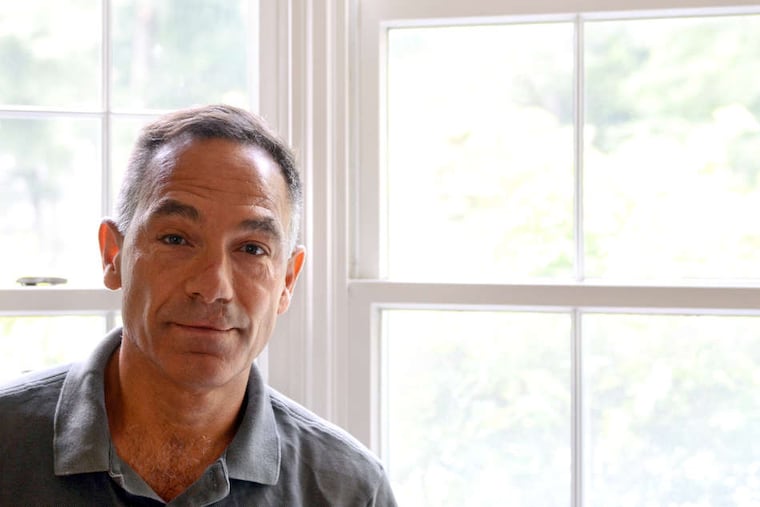Vanguard and former tax lawyer are in mediation over wrongful termination lawsuit
Former tax lawyer David Danon says Vanguard fired him because he reported illegal tax avoidance schemes to his supervisors. Vanguard says he failed to do his job as assigned.

Ten years after lawyer David Danon says he was fired after reporting illegal tax-avoidance schemes to his supervisors at the Vanguard Group, he and the company have agreed to mediation to try to settle his wrongful termination lawsuit.
A May 26 order by U.S. District Judge Berle M. Schiller requires the two sides to update him June 16 on their efforts with an independent mediator and to keep updating him once a month. As mediation goes forward, testimony in Danon’s lawsuit, some of which was to be completed this month, has been suspended.
Danon has said in court filings that starting in 2013, he reported to his Vanguard supervisors that he had found two potentially billion-dollar tax frauds at the Malvern-based investment giant:
Setting fees the company’s investor funds paid its own management company, so as to reduce its annual income tax obligations, which he said broke federal tax rules requiring a company to pay market prices for services from its own affiliates.
Stashing cash in a $2 billion “contingency reserve” that was neither shared with investors nor subjected to income taxes.
According to Danon’s court statements, after the company declined to change its practices, he reached out in 2014 to the Internal Revenue Service and the Securities and Exchange Commission. He also contacted state tax authorities.
Danon said he was fired by Vanguard in retaliation, less than a month after contacting federal agencies. The Fordham law grad joined Vanguard in 2008 after working at two big New York law firms. He has not worked as a tax lawyer since. He sued the company the year after he was fired, first in state court in New York, then in federal court in Philadelphia, where the case was thrown out at one point, but reinstated on appeal.
In court filings, Vanguard has denied wrongdoing and called Danon’s firing justified, saying he failed to do his job as assigned. The company said his departure was not a result of his tax claims.
“As we have maintained from the outset, allegations raised by this former Vanguard employee a decade ago are without merit,” a company spokesperson told The Inquirer.
After Danon’s lawyer Anthony J. Bolognese died last year and was succeeded by attorneys at the Philadelphia firm Kang Haggerty, the case was reassigned to Judge Schiller, who in March denied Vanguard’s motion to dismiss the wrongful-termination complaint and ordered discovery on Danon’s firing.
“As the court noted in the order” denying Vanguard’s motion for dismissal, “the case would turn on when Mr. Danon was terminated by Vanguard,” Danon’s current lawyer, Edward T. Kang, said in a statement.
If the court found Danon went to the SEC with allegations of “illegal practices” before he was fired, Danon “would have viable claims under the Dodd-Frank Wall Street Reform Act,” which includes hefty rewards for whistleblowers, according to Kang.
Danon “remains confident that he will prevail at trial,” Kang said, but “agreed with Vanguard to try to resolve the matter through mediation,“ which could “let the parties move on.”
A Vanguard lawyer confirmed the mediation effort in a letter to the judge.
“Vanguard firing Danon around the time he was complaining about this tax stuff wasn’t a good look. There have been a lot of headlines. This looks like a way to put it to bed,” said Jeff DeMaso, founder and editor at the Independent Vanguard Adviser, a Brooklyn publication that reports on Vanguard funds.
Danon cited The Inquirer’s reporting on changes at Vanguard and reporting by the Adviser’s predecessor publication documenting the reduction and elimination of the contingency reserves in Vanguard’s SEC reports from 2015 to 2020 to suggest the government has used Danon’s information to pressure Vanguard to eliminate the reserve and pay its proper taxes.
Danon last year asked a federal court to compel the SEC to explain why the agency had not designated him a whistleblower in the Vanguard case after he gave agents information at their request for several years after he was fired by Vanguard. The court declined.
As The Inquirer reported, Vanguard also changed language about the private, for-profit company’s structure that Danon had challenged, including ending recurring claims that the company was managed “at cost,” for “no profit,” a designation that had potential tax implications.
The company has said the old language was outdated and has not confirmed any changes or payments in response to Danon’s claims.
Danon had asked the agencies to recognize him as a whistleblower, which could qualify Danon for millions in payments as his share of any money the government recovered from the company.
In 2015 the state of Texas paid Danon $117,000 after he gave that state’s tax agency a report on Vanguard tax avoidance. No other payments have become public.
The IRS does not comment on taxpayer disputes, which typically remain private unless they become the subject of public court proceedings.